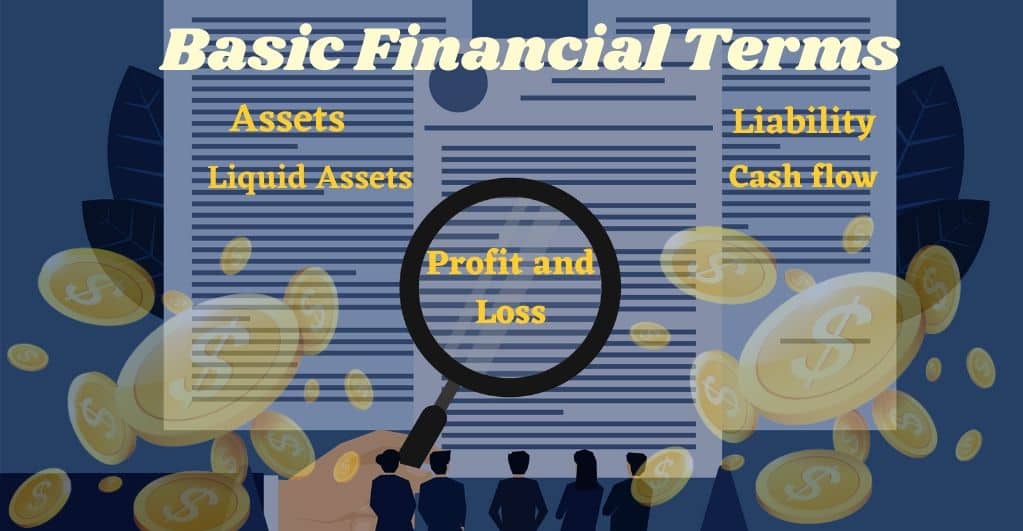To become a successful financial investor, you need to be aware of certain financial terms. Having an understanding of these terms will help you to invest better while you crisscross through the narrow and convoluted lanes of the investment world. In fact, every successful entrepreneur and financial investor knows the top finance news that has helped them to perform better while making investments.
Important Terms
Assets: Assets are one of the most basic terms used in the financial world. It can be anything that you own and one of the fundamental properties of assets that can be easily converted into cash. Some of the prominent examples of assets include property, vehicle, establishment, inventory, etc.
Liabilities: Liabilities are the expenses that you owe to someone. You might have taken a loan from the bank or financial institution that you need to repay following the terms and conditions of the agreement. Therefore, the amount of loan you have taken will be your liability.
APR: The annual percentage rate is the annual rate that is charged by the lending institution on the borrowing. It is expressed as a single number and helps you understand what actual cost of the loan is.
Liquid Assets: As the name suggests, liquid assets are the assets that can be readily converted into cash. Some of the examples of liquid assets include vehicles, marketable securities, and market instruments.
Revenue: Revenue corresponds to the total income generated by a company by selling its products and services. It is at the top of the company’s priorities as healthy revenue means the creation of value for shareholders.
Cash Flow: Cash flow is related to the amount of cash coming into and going out of the system. Positive cash flow means that the company can generate value for its stakeholders while negative cash flow is not considered as a healthy financial indicator.
Profit and loss: If the revenue earned by the company is more than expenses, then the company can be easily considered as a profitable company. Loss, on the other hand, depicts the situation where the expenses of the company are greater than the revenue generated by it.
Balance sheet: A balance sheet is the record of the company’s assets, liabilities, and equity of the shareholders. It is one of the important documents that are used to assess the financial position of the company.
Capital gain: Capital gain can be defined as the profit earned by the company by the sale of its particular property or an investment that has been able to get from the potential investors including the likes of angel investors, venture capitalists, etc.
Debt: Debt is the total amount of money that you owe. The money is due to be paid to the sources from where it has been raised. Debt is used by a variety of organizations to run their business and an optimum combination of debt and equity is helpful for the companies to operate desirably.
Annuity: If one makes a series of payments at a regular interval of time, then it is considered as an annuity. For example, if you regularly deposit a fixed amount of money to your savings account then it can be considered as an annuity.
Conclusion
Knowing the basic terms used in the financial domain can prove instrumental in helping you to become a successful investor. Knowledge and awareness of the financial investor not only about the financial terms but also of the operating mechanism used by the different organizations will ultimately decide how successful a person proves to be in the field financial domain.




